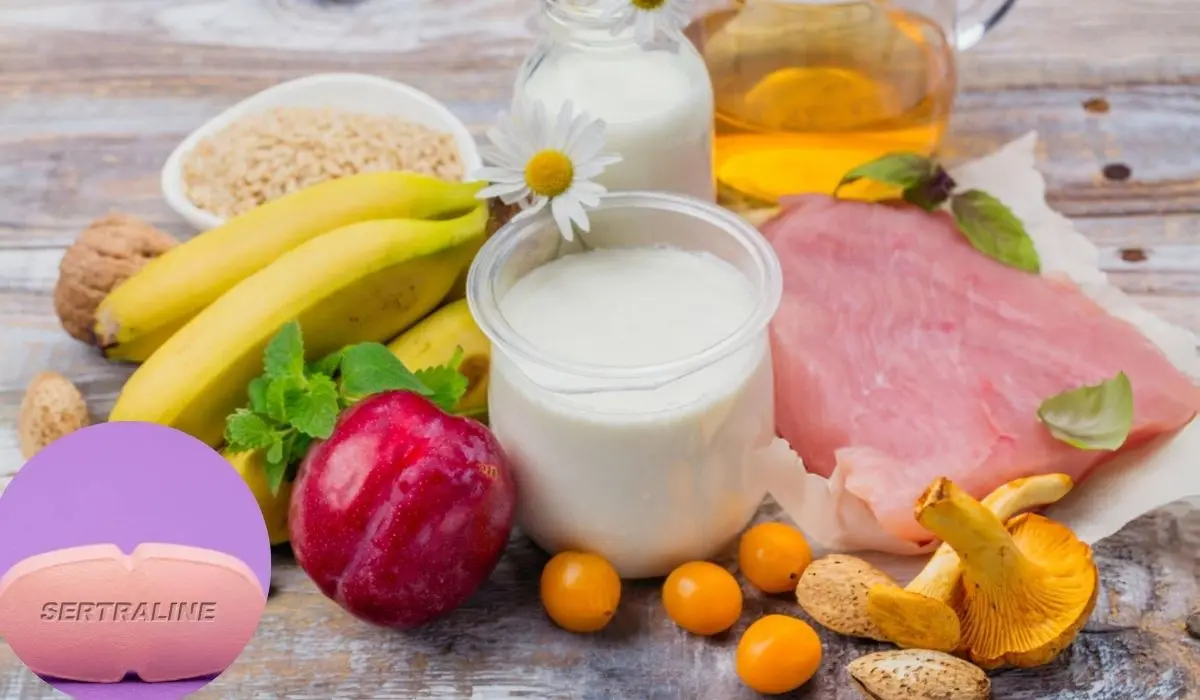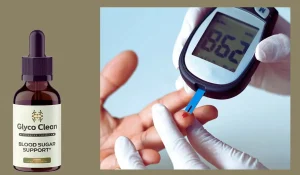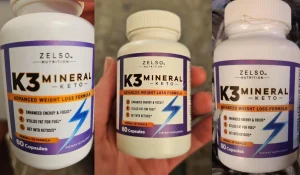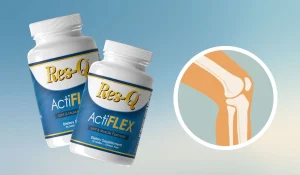When it comes to managing your mental health, finding the right medication can be a game-changer. Sertraline, a widely prescribed antidepressant, has proven to be a powerful ally for many individuals.
However, like any medication, it’s essential to understand its intricacies and potential interactions with certain foods. In this comprehensive guide, we’ll dive into the 10 foods to avoid when taking sertraline, ensuring you get the most out of your treatment journey.
What Is Sertraline?
Sertraline, also known by its brand name Zoloft, is a selective serotonin reuptake inhibitor (SSRI) used to treat various mental health conditions, including depression, anxiety disorders, obsessive-compulsive disorder (OCD), post-traumatic stress disorder (PTSD), and premenstrual dysphoric disorder (PMDD). This medication works by regulating the levels of serotonin, a neurotransmitter that plays a crucial role in mood regulation.
According to the National Institute of Mental Health (NIMH), sertraline is one of the most commonly prescribed antidepressants, and it has been found to be effective in treating various mood disorders. Sertraline belongs to the class of medications known as selective serotonin reuptake inhibitors (SSRIs), which work by increasing the availability of serotonin in the brain. This increased serotonin levels can help alleviate symptoms of depression, anxiety, and other mental health conditions.
The effectiveness of sertraline has been well-established through numerous clinical trials and studies. A systematic review published in the Journal of Clinical Psychiatry found that sertraline was significantly more effective than placebo in treating major depressive disorder.
How And When To Take Sertraline
Sertraline is typically taken once daily, either in the morning or evening, depending on your healthcare provider’s recommendation. It’s essential to follow the prescribed dosage and timing instructions carefully.
Consistency is key when taking sertraline, as missing doses or abruptly stopping the medication can lead to withdrawal symptoms, such as dizziness, nausea, irritability, and flu-like symptoms.
The U.S. Food and Drug Administration (FDA) recommends starting with a low dose of sertraline, typically 25-50 mg per day, and gradually increasing it over several weeks to minimize potential side effects.
The recommended therapeutic dose for adults with depression or OCD is usually 50-200 mg per day, while doses for other conditions may vary.
It’s crucial to take sertraline exactly as prescribed and not to alter the dosage without consulting your healthcare provider. Sertraline may take several weeks to reach its full therapeutic effect, so it’s important to be patient and continue taking the medication as directed, even if you don’t notice immediate improvements.

Foods To Avoid When Taking Sertraline
While sertraline can be a valuable treatment option, it’s crucial to be mindful of certain foods that may interact with the medication and potentially diminish its effectiveness or cause adverse reactions. Here are 10 foods to avoid when taking sertraline:
- High Tyramine Foods: Foods high in tyramine, such as aged cheeses, cured meats, and fermented products (like soy sauce, sauerkraut, and soybean paste), should be avoided when taking sertraline. Tyramine can interfere with the medication’s ability to regulate serotonin levels, potentially leading to dangerous spikes in blood pressure, according to the National Institutes of Health (NIH).
- Certain Seafood Mackerel, tuna, and sardines are examples of seafood that contain high levels of histamine, which can interact negatively with sertraline. Consuming these seafood options while taking the medication may increase the risk of adverse effects, such as headaches, flushing, and digestive issues.
- Aged Cheeses: Similar to high-tyramine foods, aged cheeses like cheddar, blue cheese, and parmesan should be avoided when taking sertraline. These cheeses are rich in tyramine, which can lead to hypertensive crises (a severe increase in blood pressure) when combined with the medication, as warned by the U.S. National Library of Medicine.
- St. John’s Wort: St. John’s Wort is a popular herbal supplement often used to alleviate mild depression. However, when combined with sertraline, it can lead to a potentially life-threatening condition called serotonin syndrome, characterized by symptoms like agitation, confusion, and rapid heartbeat. The FDA strongly advises against taking St. John’s Wort with sertraline or other antidepressants.
- Ginseng: Ginseng supplements may interact with sertraline, affecting how the body metabolizes the medication. This interaction can potentially reduce the effectiveness of sertraline, making it essential to discuss ginseng use with your healthcare provider, as advised by the Memorial Sloan Kettering Cancer Center.
- Ginkgo Biloba: Similar to ginseng, ginkgo biloba can also interact with sertraline, potentially reducing its effectiveness in treating depression or anxiety. The National Center for Complementary and Integrative Health (NCCIH) recommends avoiding ginkgo biloba supplements while taking sertraline or other antidepressants.
- Alcohol: Consuming alcohol while on sertraline can increase the risk of side effects such as dizziness, drowsiness, and impaired coordination. Additionally, alcohol may worsen symptoms of depression and anxiety, counteracting the intended effects of sertraline, according to the NIMH.
- Excessive Caffeine: While moderate caffeine intake is generally acceptable, excessive consumption can interfere with sertraline’s metabolism and exacerbate side effects like restlessness and insomnia. The FDA recommends limiting caffeine intake while taking sertraline and monitoring for any adverse effects.
- Grapefruit and Grapefruit Juice: Grapefruit and its juice can interact with sertraline, affecting how the medication is absorbed and metabolized by the body. This interaction can lead to increased or decreased levels of sertraline in the bloodstream, potentially impacting its effectiveness or causing adverse effects, as warned by the FDA.
- High-Fat Meals: Consuming high-fat meals can delay the absorption of sertraline, potentially reducing its efficacy. The U.S. National Library of Medicine recommends taking sertraline with a low-fat meal or on an empty stomach for optimal absorption.
Side Effects Of Sertraline
Like any medication, sertraline can cause side effects, ranging from mild to severe. Common side effects include nausea, dizziness, dry mouth, insomnia, decreased appetite, and increased sweating, according to the NIMH. These side effects are generally mild and may subside as your body adjusts to the medication.
However, some individuals may experience more severe side effects, such as suicidal thoughts, irregular heartbeat, or severe allergic reactions. It’s essential to report any severe or persistent side effects to your healthcare provider immediately. In some cases, adjusting the dosage or switching to a different medication may be necessary.
Sertraline may also interact with other medications or underlying medical conditions, potentially increasing the risk of side effects or altering its effectiveness. It’s crucial to inform your healthcare provider about any other medications, supplements, or medical conditions you have before starting sertraline treatment.
Do Caffeine And Sertraline Interact?
As mentioned earlier, excessive caffeine consumption can interact with sertraline and exacerbate certain side effects. However, moderate caffeine intake is generally considered safe. The Mayo Clinic recommends limiting caffeine intake to no more than 400 milligrams per day (approximately four cups of coffee) while taking sertraline. It’s advisable to discuss your caffeine consumption habits with your healthcare provider to determine the appropriate limits while taking sertraline.
Who Can’t Take Sertraline?
Sertraline may not be suitable for everyone. Individuals with certain medical conditions, such as liver or kidney disease, seizure disorders, or a history of bipolar disorder, should exercise caution and consult with their healthcare provider before starting sertraline treatment, as advised by the FDA
Additionally, pregnant or breastfeeding women should discuss the risks and benefits with their healthcare provider before taking sertraline, as it may have potential adverse effects on the developing fetus or nursing infant, according to the American College of Obstetricians and Gynecologists (ACOG.
Conclusion
Navigating the world of sertraline and understanding the foods to avoid when taking sertraline can be a valuable tool in achieving optimal treatment outcomes.
By being mindful of potential food interactions and following your healthcare provider’s guidance, you can ensure the effectiveness of your medication and promote better mental health.
Remember, open communication with your healthcare team is crucial. Don’t hesitate to discuss any concerns or questions regarding sertraline and its interactions with your diet. By staying informed and making informed choices, you can take an active role in your treatment journey and pave the way for a healthier, more balanced life.
References
1. U.S. Food and Drug Administration. (2021). Sertraline Information. https://www.fda.gov/drugs/postmarket-drug-safety-information-patients-and-providers/sertraline-information
2. National Institute of Mental Health. (2019). Mental Health Medications. https://www.nimh.nih.gov/health/topics/mental-health-medications/index.shtml
3. MedlinePlus. (2022). Sertraline. https://medlineplus.gov/druginfo/meds/a697048.html
4. U.S. Food and Drug Administration. (2021). Sertraline: Highlights of Prescribing Information. https://www.accessdata.fda.gov/drugsatfda_docs/label/2021/019639s097lbl.pdf







